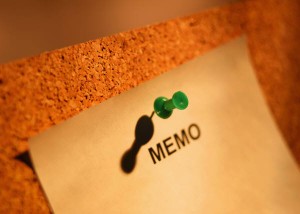When you communicate in writing you automatically create a record of your message. Also you have the opportunity to choose your words more carefully than you would if you were speaking without a prepared text.
If you receive something in writing you can keep it for future reference. Another advantage of receiving a written document is that you can read it when you have the time-or, when necessary, devote the time needed to study it carefully. Some general rules for effective writing
1. Keep it simple
Make your sentences, paragraphs and overall document as short and concise as possible. Don’t use big words just to impress- and don’t use words you don’t understand fully yourself. You may confuse your readers or make yourself look foolish if you use words incorrectly.
2. Strive for clarity
When you finish writing, reread the document and rewrite any passages that sound confusing or might be misinterpreted. Check punctuation spelling (using a dictionary may help) and grammar.
3. Give the right amount of detail
Provide enough detail to make your meaning clear, but not so much that you overwhelm, confuse or bore your reader. Whenever possible, restrict your message to one side of an A4 piece of paper.
4. Give copies to everyone concerned
Everyone who has a need to know should receive a copy. This is more than a courtesy- it’s essential to keep the right people informed and up to date.
5. Get help if you need it
If you need information or help in writing, talk to a colleague, superior or someone else who’s skilled at writing. It’s worth the extra time and effort to avoid a misunderstanding or embarrassment.





4 Comments. Leave new
Good effort!
Good work..!
Very well said.
nice one…